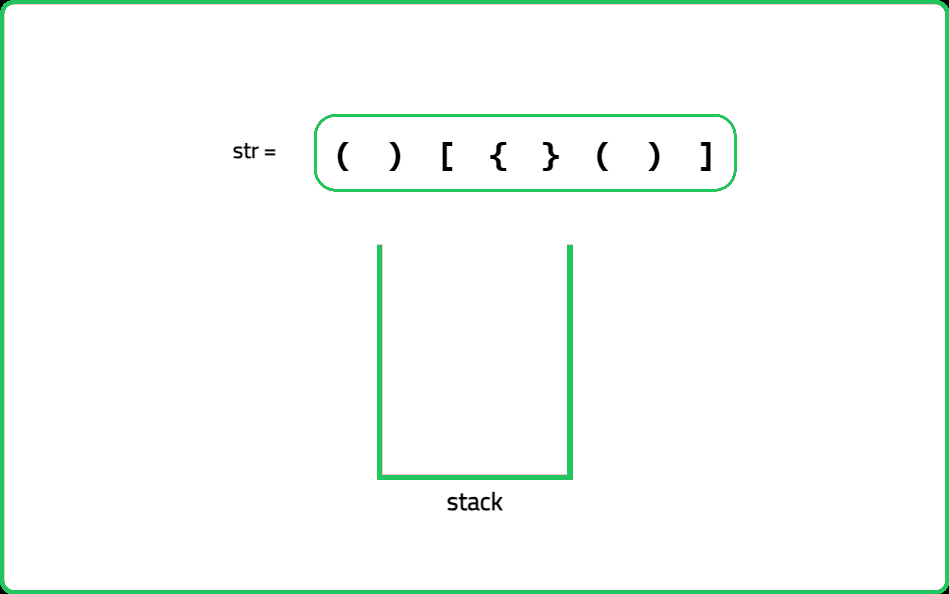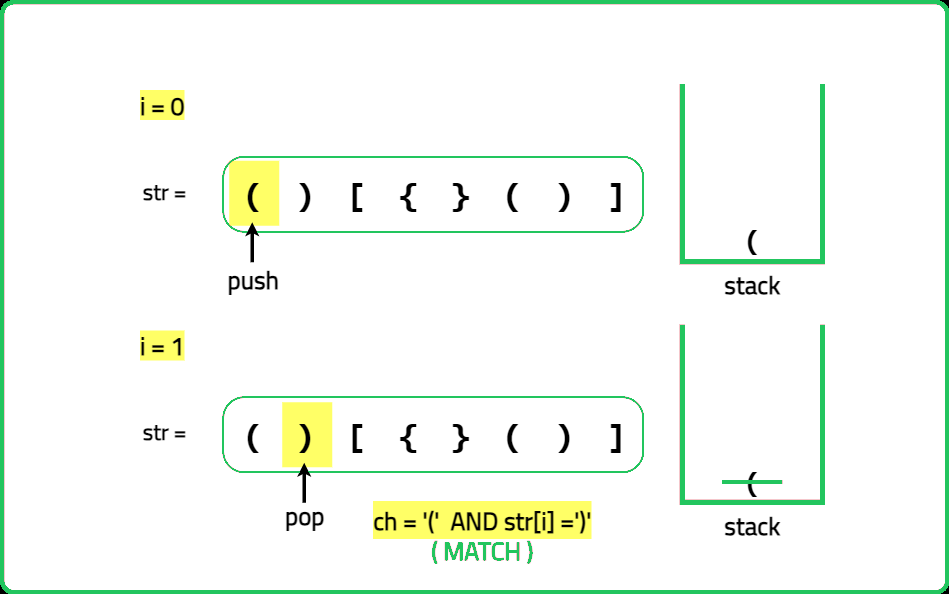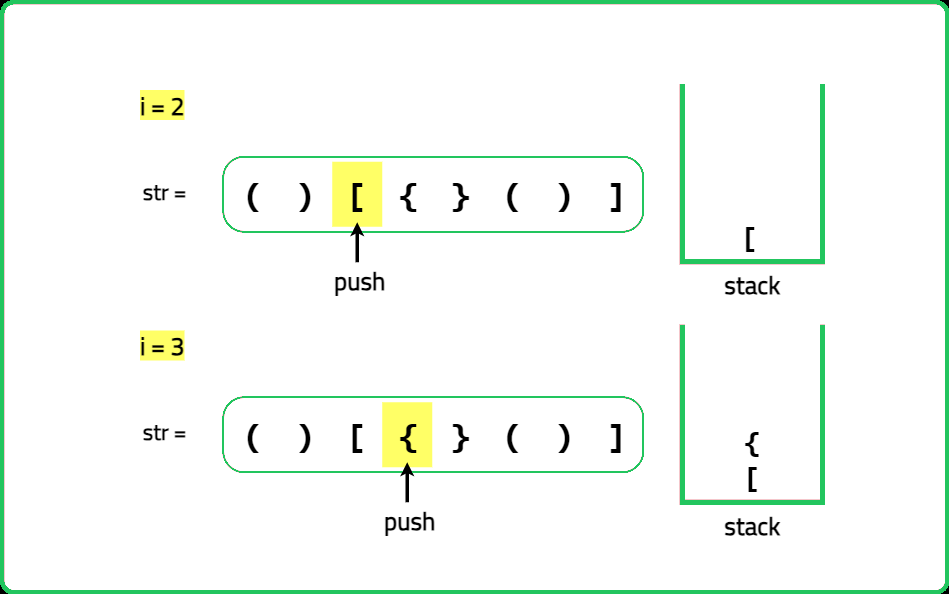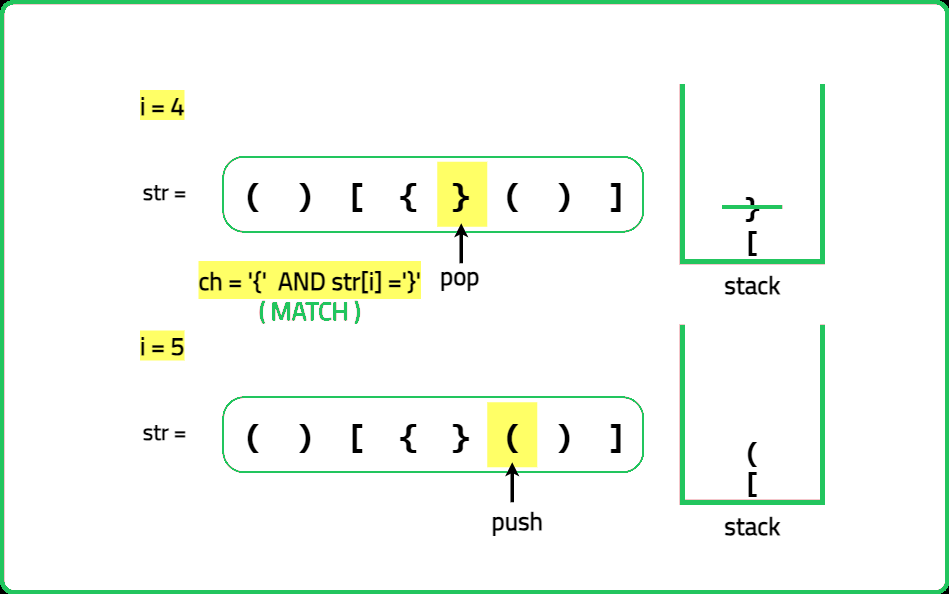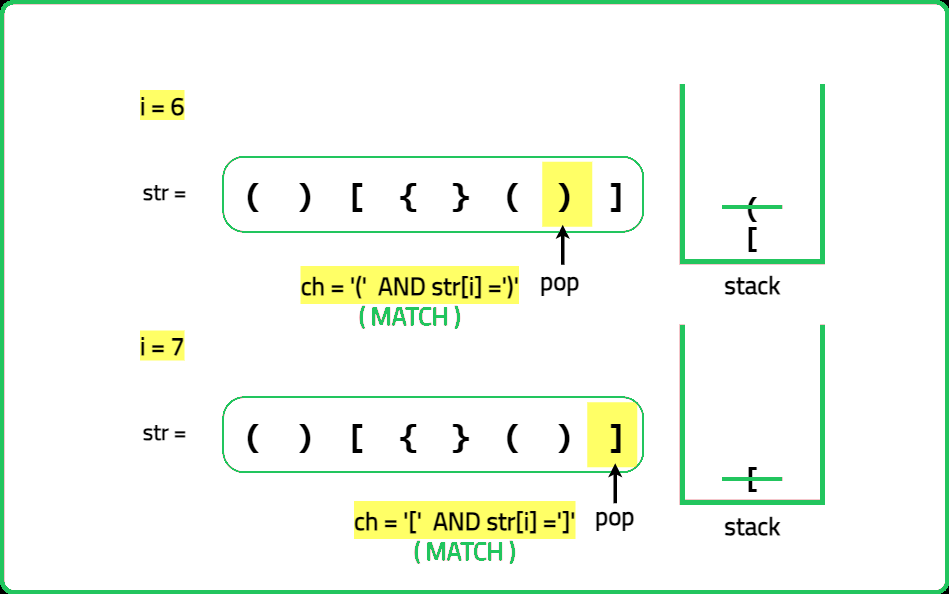Balanced Paranthesis
Stack / Queues
Implementation
Easy
- This problem is essential in software development, particularly in languages like Python, JavaScript, or C++ where brackets are used extensively to delimit blocks of code, arrays and objects
- An imbalance in brackets can cause a program to fail, often leading to "syntax error" messages
- This real-world application is not exclusive to coding; it's also vital in validation of data formats like JSON and XML, ensuring that they are well-structured and correctly nested
Given string str containing just the characters '(', ')', '{', '}', '[' and ']', check if the input string is valid and return true if the string is balanced otherwise return false.
Examples:
Input: str = “()[{}()]”
Output: True
Explanation: As every open bracket has its corresponding close bracket. Match parentheses are in correct order hence they are balanced.
Input: str = “[()”
Output: False
Explanation: As ‘[‘ does not have ‘]’ hence it is not valid and will return false.
Input: str = "{[()]}"
Constraints
1 <= str.length <= 104
str consists of parentheses only '()[]{}'.
Hints
- Use a stack to store opening brackets (, {, [.
- When encountering a closing bracket ), }, ]. Check if the top of the stack is its corresponding opening bracket. If matched, pop the opening bracket. Otherwise, return false.
Company Tags
Goldman Sachs
Walmart
Twilio
Rockstar Games
Red Hat
Cerner
Oracle
PwC
GE Healthcare
Johnson & Johnson
Docker
Zomato
Electronic Arts
Western Digital
HCL Technologies
Siemens Healthineers
Ubisoft
ARM
Micron Technology
Uber
Deloitte
Broadcom
Snowflake
Stripe
Robinhood
Google
Microsoft
Amazon
Meta
Apple
Netflix
Adobe
TCS
Cognizant
Accenture
Infosys
Capgemini
Wipro
